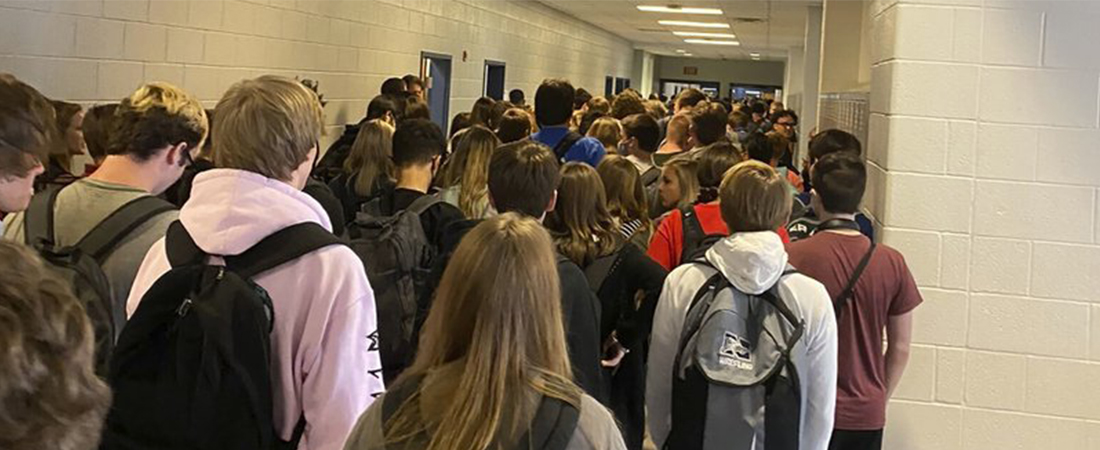On August 3 and 4, two students at North Paulding High School in Dallas, GA, posted pictures to social media showing students in crowded hallways where social distancing was clearly impossible. Most students were not wearing masks. Unsurprisingly, the pictures immediately became a topic of discussion in the national media.
In response, the school suspended the students on the grounds that they had violated school policies that forbid filming on campus, as well as rules against posting to social media during school hours. To make matters worse, the school principal used the school’s public address system to threaten punishment for any student who posted “negative” photographs or videos about the school on social media.
On the same day, it was reported that the suspensions had been rescinded. Although District officials may have suddenly discovered a commitment to robust debate on pressing social issues, it is more likely that they acted on advice of their legal counsel who informed them that the suspensions were almost certainly unconstitutional.
On August 7, NCAC joined a letter from the Student Press Law Center (SPLC) outlining some of the serious First Amendment concerns raised by the effort to punish the students.
There are several other First Amendment problems which were not mentioned in the SPLC letter.
First, is it clear from the fact that the principal warned against only the posting of “negative” pictures that the motive for the suspensions was to punish the students for making the school look bad.
Second, the state of the law is clear: Students have free speech rights in school unless one of a few recognized exceptions apply. Those exceptions are:
- When the speech is likely to substantially disrupt the school (the Tinker case)
- When the speech is school-sponsored (the Hazelwood case)
- When the speech is profane (the Fraser case)
- When the speech advocates illegal drug use (the Morse case [aka, the “Bong Hits for Jesus” case)
None of those exceptions apply. Moreover, as Justice Alito noted in his concurrence in Morse, he and Justice Kenney “join[ed] the opinion of the Court on the understanding that (a) it goes no further than to hold that a public school may restrict speech that a reasonable observer would interpret as advocating illegal drug use and (b) it provides no support for any restriction of speech that can plausibly be interpreted as commenting on any political or social issue[.]” The speech of the students at North Paulding High School were not merely commenting on just “any” political or social issue, but rather on one of the most important public policy issues of 2020. Hence, they clearly had the right to speak on that topic.
Moreover, courts have repeatedly held that the First Amendment protects the right to film government officials performing their duties, and of course recent years have shown the importance of the ability of citizens to record the actions of police officers, including police officers or security staff operating inside schools. Moreover, in Georgia, as in most states, K-12 spending is the single largest item in the state budget, and so citizens have the right to information about what goes on in schools. That right would be threatened if the voices of most witnesses — i.e, students — could be silenced.
Students do not have carte blanche to film anywhere in schools at any time: students cannot learn if they are constantly trying to perform on camera for their peers; the use of cameras can compromise test security; and cameras can obviously be used to harass or bully other students.
However, when students use cameras to document evidence relating to important social and political issues, and when that use does not disrupt school, contain profanity, or advocate illegal drug use, those students are protected by the First Amendment.


